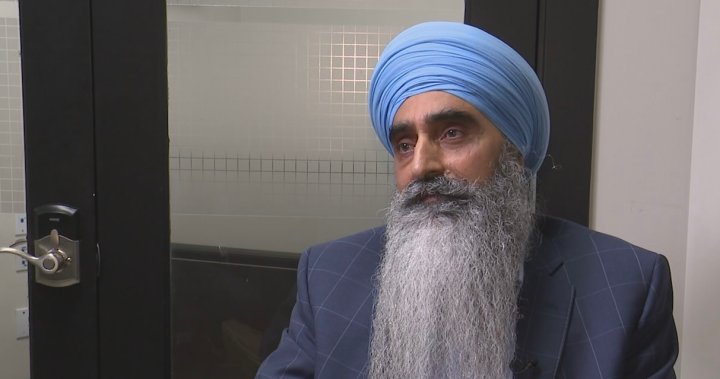Bikramjit Singh Sandhar’s 2016 visa application to India, intended for a family visit and to see his ailing grandfather, was denied. Indian consular officials in Vancouver cited statements they attributed to Sandhar during his presidency of the Guru Nanak Sikh Temple in Surrey, B.C., specifically alleging his involvement in discussions about the Khalistan movement, which advocates for an independent Sikh state of Punjab. This incident highlighted the monitoring of Canadian places of worship by Indian officials and the use of visa denials as a form of punishment for expressing views deemed unfavorable to the Indian government. Further complicating the situation, Sandhar was subsequently presented with a pre-written letter, obtained through intermediaries, requiring him to renounce Khalistan and declare his respect for India as a condition for visa approval. This practice has become increasingly prevalent, as confirmed by Sikh community leaders, victims, officials, and law enforcement, illustrating how visas are leveraged as a tool of foreign interference by the Indian government.
Visas are essential for Canadians travelling to India for family, business, or religious purposes, making them a potent instrument of influence. A Global News investigation reveals that Indian officials and agents have exploited this dependency, pressuring Canadians into actions that advance Prime Minister Narendra Modi’s agenda. The letter presented to Sandhar not only demanded a denunciation of the Khalistan movement and an affirmation of India’s sovereignty but also required him to profess loyalty to India as his “mother country.” This manipulation extends beyond Sandhar, as other Sikh Canadian leaders and their family members have reported similar experiences, where signing pre-written, pro-India statements was a prerequisite for visa approval. This tactic appears to target prominent members of the Sikh community, aiming to suppress dissent and control narratives related to Khalistan.
The RCMP has accused Indian diplomatic and consular officials of employing visa denials as a coercive tactic, compelling Canadians to perform tasks that serve Indian intelligence interests, including gathering information on Modi’s opponents, sometimes leading to acts of violence. This accusation aligns with Prime Minister Justin Trudeau’s assertion that Indian envoys have threatened visa withholdings as part of a coercive information-gathering campaign. These allegations expose a pattern of foreign interference and transnational repression, where the Indian government uses visas to silence dissent and control the narrative around sensitive issues like the Khalistan movement. The practice of leveraging visas spans decades but remains largely unreported due to victims’ fears of further repercussions.
The visa denial process typically begins with an initial rejection, followed by an invitation to the consulate for discussion. Pro-India figures within the community often act as intermediaries, pressuring applicants to demonstrate support for Modi and his government. For prominent community members, written letters denouncing Khalistan and endorsing Modi are preferred, serving as valuable propaganda for the Indian government. Sandhar’s experience, though troubling, underscores the pervasive nature of this issue within the Canadian Sikh community. He was flagged for his alleged activism, despite his insistence that his focus was on human rights in India. Following the visa denial, he was directed to Maninder Singh Gill, a prominent figure in Surrey’s South Asian community and the operator of Radio India, who facilitated the delivery of the pre-written letter.
Gill, a long-time resident of Surrey, has established himself as a key figure in the South Asian media landscape. His radio station, Radio India, has become a platform for politicians seeking to connect with the South Asian community, hosting MPs, MLAs, premiers, and mayors. Gill’s influence extends to fundraising for various causes and his involvement in community events. However, his history includes a shooting incident at the Guru Nanak temple and the formation of the Friends of Canada and India Foundation, an organization that has organized pro-India demonstrations and denounced Khalistan supporters. While Gill claims to be a bridge between India and Canada, promoting positive relations, his actions have drawn scrutiny from Canadian security agencies.
Former Liberal MP John Aldag recounted being warned by CSIS about Gill’s potential motives after winning the Cloverdale—Langley City riding in the 2021 federal election. Aldag confirmed interacting with Gill but denied sharing any sensitive information. This incident highlights the growing awareness of foreign interference within Canadian political circles. Gill’s activities, coupled with India’s ranking as a significant foreign interference threat by Canadian intelligence agencies, underscore the complex interplay of community engagement, political influence, and potential foreign interference. The use of “proxy agents”—Canadian citizens and residents acting on behalf of foreign states—has been highlighted as a key tactic in India’s foreign interference efforts. While Gill maintains his innocence, claiming only to facilitate better relations between India and Canada, his actions continue to draw attention amidst heightened concerns about foreign interference.










